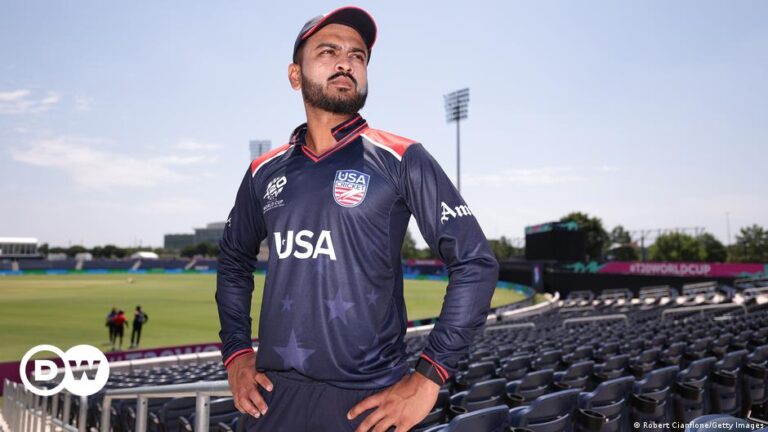Why is America hosting the Cricket World Cup?
In 2021, the United States was named co-host of the Twenty20 (T20) World Cup, the shortest format of international cricket. Sixteen of the 55 matches in the 20-team tournament will be played in the United States, split across venues in Florida, New York and Texas. The United States will face Canada in the tournament’s opening match on June 2. The remaining matches, including the final on June 29, will be played at stadiums in the West Indies, a more traditional cricketing nation.
The advent of T20 cricket has opened up new commercial vistas for the sport, with the US seen as the latest frontier to conquer. Parag Marathe, president of the US Cricket Association, said the International Cricket Council, the sport’s world governing body, “recognizes the US as a strategic market for growth that will benefit cricket around the world” and allow for the development of the domestic game.
It has already seen dramatic growth in recent years thanks to Major League Cricket (MLC), a T20 franchise based on the Indian Premier League (IPL). MLC’s investors include Microsoft CEO Satya Nadella and Adobe executive Shantanu Narayan, both of Indian descent. The league also boasts some of the biggest international names in the game, including Jason Roy (England), Sunil Narine (West Indies), Trent Boult (New Zealand) and Kagiso Rabada (South Africa). The new MLC season will kick off less than a week after the final, with the 2024 season hoping to capitalize on the positive effects of the World Cup.
Does America have any history in cricket?
Surprisingly to many, the United States can claim to have played in the first ever international match, against neighbouring Canada in 1844. This was long before what is often referred to as the first Test match (the most prestigious form of international competition), between England and Australia, played in 1882. As with the rest of the world, cricket was exported to the US by British colonialists, but around the time of the American Civil War of 1861-1865, baseball became the favoured American bat-and-ball game.
The past few years have been a period of missed opportunities, with poor governance and lack of interest resulting in low participation and recognition. But more recently, the US has had some good performances, including a 2-1 win over established T20 nation Bangladesh in a recent pre-tournament warm-up series. In the tournament itself, though, the US will likely be in the outsider category.
Are there any cricket fans in America?
Yes, it’s growing. The country has the largest immigrant population in the world, with India being the second largest after Mexico, but there are also many people of British and Caribbean descent.
Yet a recent survey by polling firm YouGov found that only 10% of Americans are aware of the MLC and only 6% are aware of the upcoming World Cup. But one in five are interested in the tournament, with interest particularly high among younger generations (18-34 years old). Of those interested in cricket, only 62% said they would root for the United States, which may be further evidence of the diaspora effect that is also reflected in the U.S. team. Captain Monankh Patel is one of the players born outside of India, Pakistan or the United States.
Who do you think will win this tournament?
The large Indian-born or Indian-linked fan base could boost an already strong India side. India won the inaugural T20 World Cup in 2007 but have not won since, despite the IPL adding depth to their talent base. Veteran batting duo Rohit Sharma and Virat Kohli will be key as ever, while Suriya Kumar Yadav tops the ICC batting rankings and Jasprit Bumrah is one of the best T20 bowlers of all time.
Australia and reigning champions England are just behind India, with co-hosts West Indies having won the tournament twice (2012 and 2016) and boasting a host of explosive talent.
Who will cause chaos?
Canada and Uganda, making their debuts after the US, are unlikely to make it out of groups that also include India, Pakistan and New Zealand, West Indies, respectively, but with the field expanding from 16 to 20 teams this year, all of these emerging nations will have a chance to win the World Cup.
The shortened format of the game allows for more shocks and has previously given chances to teams such as Afghanistan, who beat the West Indies in 2016. With brilliant spinner Rashid Khan and experienced, devastating all-rounder Mohammed Nabi, Afghanistan have at least a chance of progressing out of the group.
Editor: Jonathan Crane

